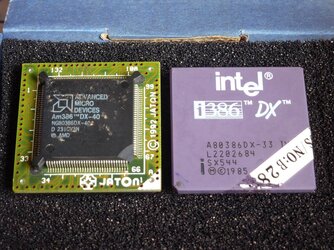Thanks for linking part 2. End was as good as the beginning. I did think it was rather inconclusive, and due to that, was probably a little overly optimistic towards the end about AMD's future. However, I guess AMD always finds a way to continue limping along despite all the misteps, so maybe that optimism isn't entirely misplaced.
The comments about consoles put things in perspective. Xbox 360 shipped around 70 million units in the years since it launched, PC sales clobbers that in a single quarter. All of PS4 and Xbox isn't anything to sneeze at, but still very small potatoes compared to PC sales.
The Seamicro thing could be interesting, but the article also points out AMD has no competitive advantage in that segment, other than whatever software technology SeaMicro brought with it (plenty of brilliant software engineers out there, probably harder to come by brilliant hardware architecture engineers so it'd be better to be in a position where you have a competitive hardware advantage). AMD does have the cores/price advantage, but selling a bunch of cores with low margins hasn't proven to keep AMD healthy. Intel will take this segment though, unless it doesn't want it for some reason.
I'd say the best thing AMD has going for, is something the article didn't mention. The real high point is that Intel screwed the pooch as well with missing out on low power architectures where all the growth moved to, and where Qualcomm/Nvidia/TI/Samsung are the only serious contenders. Intel does have a dog in the race, but it isn't worth talking about... Which is good, because AMD's got nothing.
Kind of unbelievable to me that neither Intel or AMD had the foresight to see the mobile shift coming, and neither were able to position themselves into a market segment that is turning up in order to offset their losses in the PC market which was turning down.

